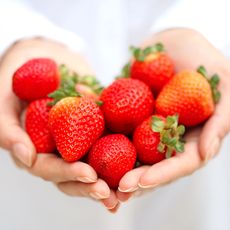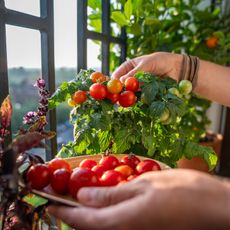Citrus Alternaria Rot Info: Treating A Citrus Tree With Alternaria Rot

Whether growing citrus indoors in containers or outdoors in a tropical climate, watching the plants produce a crop of fresh fruit can be quite exciting. However, without proper maintenance, trees may become stressed, making them more susceptible to various citrus diseases. Alternaria rot is one such issue which many citrus growers encounter. While the damage may not be immediately apparent, alternaria on citrus trees may result in frustrating fruit loss at harvest time.
What is Citrus Alternaria Rot?
Citrus alternaria rot, or black rot, is most commonly found in oranges, tangelos, and lemons. However, it may occur in other citrus as well. During periods of rainy and/or humid weather, a fungus called Alternaria citri may begin to grow on damaged or dead citrus tissues. The fungal spores are then released and are able to spread to citrus blossoms and immature fruits. The spores enter the fruit through naturally occurring cracks early in fruit development and begin to cause rot.
Symptoms of Alternaria on Citrus
In many cases, alternaria of citrus is not discovered until after the harvest. However, there are few key observable symptoms which may indicate a cause for concern. Some fruits may show early signs of infection, such as premature coloring, while others may not show signs of rot until after being stored. Infected fruits that have been stored may begin to develop brown or black spots at the bottom of the fruit. Slicing into the fruit will reveal even further damage. A citrus tree with alternaria is also much more likely to drop fruit before it has ripened.
Preventing Citrus Alternaria Rot
While there are some treatments available for commercial growers for fruit post-harvest, the best option for the home gardener is prevention. Unhealthy, stressed citrus trees are far more likely to have issues with alternaria of citrus. To prevent black rot on citrus trees, maintain a proper care schedule which includes watering and fertilizing regularly.
Gardening tips, videos, info and more delivered right to your inbox!
Sign up for the Gardening Know How newsletter today and receive a free copy of our e-book "How to Grow Delicious Tomatoes".

Tonya Barnett has been gardening for 13 years. Flowers are her passion. She has transformed her backyard into a cut flower garden, which she regularly chronicles on her YouTube channel http://www.youtube.com/@tonyawiththeflowers.
-
 How To Grow Strawberries From A Strawberry: All You Need To Cultivate Yummy Fruits
How To Grow Strawberries From A Strawberry: All You Need To Cultivate Yummy FruitsYou may know how to grow strawberries from small plants or runners – but what about growing from the fruit? Here we show you how to grow strawberries from a strawberry
By Mary Ellen Ellis
-
 Best Tomatoes For Containers: 10 Tastiest Varieties For Plentiful Produce In Compact Areas
Best Tomatoes For Containers: 10 Tastiest Varieties For Plentiful Produce In Compact AreasThese are the best tomatoes for containers that prove you don't need to have a large space or elaborate garden to grow delicious produce.
By Bonnie L. Grant